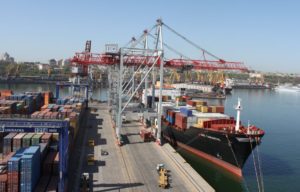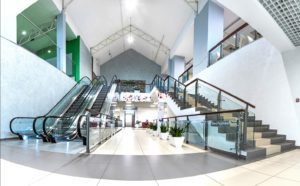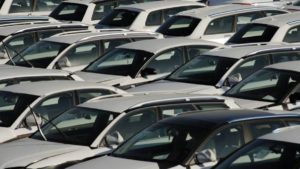
The newly created Ministry of Energy and Environmental Protection sees the reset of the Environmental Inspectorate as its priority, the ministry said on its Facebook page. “One of our priorities is a complete reload of the Environmental Inspectorate’s work. We must establish effective monitoring of emissions and effluents. Regulatory indicators must exist not only on paper, but also be seen in practice. To do this, we will establish the effective work of the Environmental Inspectorate,” the press service quotes Minister Oleksiy Orzhel.
He also emphasized the importance of preserving nature and taking additional measures to reduce an impact on the environment.
“We have information that half of 4.7 billion cubic meters of effluent falls into rivers with excessive levels of pollutants. This situation is unacceptable. We will work to reduce this figure,” said Orzhel.
Another key task, according to the minister, is to establish control over compliance with environmental laws and eco-monitoring.
As reported, Ukrainian resident Volodymyr Zelensky instructed the Cabinet of Ministers to conduct a “full personnel reshuffle” at a number of departments by the end of 2019 as part of the elimination of large-scale corruption schemes in state authorities. This list includes: the State Service of Ukraine for Geodesy, Cartography and Cadastre (DerzhGeoCadastre), the State Service for Geology and Subsoil of Ukraine (DerzhGeoNadra), the State Architectural and Construction Inspectorate, the State Environmental Inspectorate, UkrTransBezbeka and the Ukravtodor Road Agency.

Ukraine’s Ministry of Infrastructure has announced competitions for the transfer of the property of the state companies Olvia Stevedoring Company (Mykolaiv) and Kherson Maritime Merchant Port and the relevant property of the Ukrainian Sea Ports Authority. According to an article published in the government newspaper Uriadovy Kurier, the concession for Olvia will be granted for 35 years, while the one for Kherson port will be granted for 30 years.
The main task for the two pilot projects is to bring international practices and technology to Ukrainian ports.
By law, the competition and determination of a winner must be completed in a little over three months.
The concessionaires are expected to provide a total of UAH 17.3 billion in investment for Olvia and UAH 1.4 billion for Kherson port. Investment will be aimed at renovating infrastructure and developing the ports.
Plans for the first three years include the construction of a new grain terminal with a capacity of 2 million tonnes per year at Olvia (UAH 1.56 billion) and high-priority modernization at Kherson port (UAH 216 million).
According to the Ministry of Infrastructure, more than 25 companies from Ukraine, the United States, China, France, Switzerland, the UK, Japan, Turkey, Qatar, and South Korea have expressed interest in the concessions. Nibulon, one of Ukraine’s biggest grain traders, said it might invest in Kherson port.

Shuvar LLC (Lviv), the operator of the eponymous agricultural market, plans to start building second phase of the regional agricultural center with a total area of 26,000 square meters in 2020 sticking to the implementation of a development concept.
According to a posting on the website of the company, the market announced an architecture tender to select the best project for second phase. Architectural shops MarekArciszewski, MAManagement (Warsaw, Poland), Artik Design Bureau LLC (Lviv) and A-III Dmytro Antoniuk LLC (Kyiv) presented their projects.
The projected building will be three-story and includes, in addition to pavilions with different types of agricultural products, a retail gallery with recreation areas and craft products, a food hall with 5-10 restaurants of various cuisines and a single food hall.
The facility will be located on a plot of 20 hectares.
Shuvar LLC was created in 1991.
The participants of the limited liability company, according to the National Commission for Securities and the Stock Market, as of early 2018 were Roman Fedishyn (50.5%), Andriy Chipchar (27%), Liubov Doskoch (9.8%), Liubov Bokalo (9.6%), Natalia Fedishyn (2 , 5%), as well as Shuvar LLC (0.4%). The ultimate beneficiary is Roman Fedishyn.

Ukraine in January-August 2019 decreased exports of pig iron in natural terms by 25.8% compared to the same period in 2018, to 1.567 million tonnes.
According to customs statistics released by the State Fiscal Service, during this period exports of cast iron in monetary terms fell by 31.1%, to $507.943 million.
Exports were mainly made to the United States (53.39% of deliveries in monetary terms), Italy (15.45%), and Turkey (9.91%).
In January-August 2019, Ukraine imported 836 tonnes of similar products for $502,000, while in January-August 2018 some 997 tonnes worth $569,000. Imports were carried out from Russia (76.29% of deliveries in monetary terms), Germany (20.92%), and Poland (2.79%).
As reported, in 2018, Ukraine increased exports of pig iron by 28.4%, to 3.006 million tonnes, and in money terms it rose by 42.6%, to $1.053 billion. Exports were mainly made to the United States (59.88% of deliveries in monetary terms), Italy (11.85%), and Turkey (10.92%).
In 2018, Ukraine imported 1,375 tonnes of pig iron for $796,000, while in 2017 – 2,000 tonnes for $1.02 million. The goods were imported from Russia (78.02% of deliveries in monetary terms) and Germany (21.98%).

The State Forest Resources Agency of Ukraine has said that it is necessary to annul a moratorium on export of unprocessed logs imposed in 2015.
“It is necessary to lift the moratorium, give a free market for logs – this will stimulate price growth and the work of our industry enterprises, and not only those that are coordinated by the State Forest Resources Agency. This will give an impetus to the development of the economy,” Deputy Head of the State Forest Agency Volodymyr Bondar said in a statement of the agency.
According to him, the moratorium on the export of unprocessed logs in the form it was accepted did not give an economic breakthrough, and created a “criminal situation for the state’s economy” in the issue of logs.
“Forestry enterprises today have the remains of 1.2 million cubic meters of logs. We have reduced logging, because we cannot sell what was logged in Ukraine,” Bondar said.
He said that if the legislator wanted to stock logs and give impetus to the development of local business, then this had to be done not through a ban, but through stimulating the development and deepening of processing.
“For this, it is necessary that investments come to Ukraine. Without making any decisions on creating an investment climate in Ukraine, simply banning the export of logs, this only leads to a decrease in the domestic price, a decrease in logging. We do not even remove logs, which we mark in the forest, because it does not have its own consumer,” the deputy head of the State Forest Resources Agency said.
According to Bondar, due to lower prices for logs and the inability to sell it, the question of stopping enterprises of various types arises.

Primary registrations of new passenger cars in Ukraine in January-August 2019 grew by 2% year-over-year, to 54,600, the Ukrautoprom association has reported.
Sales growth in August of this year by 12.5% compared to August of 2018, to 8,300 cars, contributed to the positive pace over the January-August period.
“This is the best result for the domestic market over the past 19 months,” the association said.
The leader of August – Renault – improved the result of the same month by 44% to 1,422 cars, Toyota ranked second, registrations of which grew by 20% to 1,175 cars, and the KIA brand moved up to the third position with sales growth of 71%, up to 817 cars.
Skoda was fourth with 601 cars sold (a rise of 49%), and Nissan maintained fifth position despite a 5% drop in sales (to 472 cars).
Ukrautoprom said that over the past summer season in Ukraine, 22,400 new passenger cars were registered.
Meanwhile, the AUTO-Consulting information and analytical group, analyzing car sales last month, said that sales growth amounted to 6.3%, to 8,200 cars, even compared to the successful July of 2019, and compared to August 2018, they grew by 19.8%.
The top three of the month at AUTO-Consulting coincides with Ukrautoprom’s, and the group’s sensation of the month is Peugeot’s breakthrough in eighth place (11th in July), with a 25.4% increase in sales, to 247 vehicles compared with July 2019.